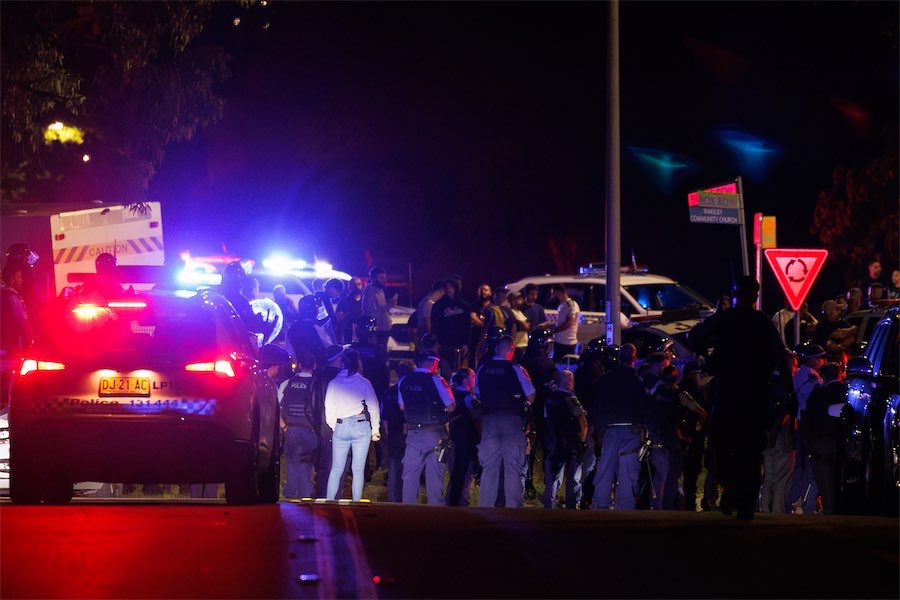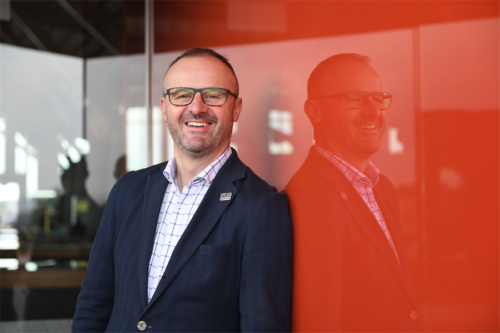THE media forms a critical pillar of democracy and it’s unsurprising that the hair on the neck rises when it is being blatantly manipulated by one of our politicians.
The Leader of the Opposition, Tony Abbott’s refusal to go one-to-one for an hour on “Q&A” is just one indication that something is awry.
His approach contrasts with the recent performance of Prime Minister Julia Gillard who, with one exception, dealt with the interrogation flawlessly.
Good media management for politicians also means knowing when to ensure appropriate distance from the media on specific issues.
However, when the distance is carefully orchestrated to ensure there can be as little cross-examination as possible, it must be described as manipulation and should make the general public suspicious.
The technique adopted by Abbott warrants analysis. He is certainly regularly in the media at openings, as a “real man” on his bicycle, running or swimming, on a production line with workers or at shopping centres. There is always the brief “grab” and the standard line usually repeated a couple of times in different ways. A negative, sharp, smart line is delivered critically focused on the Government and the Prime Minister in particular.
This is fairly standard fare for a leading politician in the media. However, in a healthy democratic environment it should be part of the repertoire rather than being the dominant aspect of the media interaction.
Gillard uses many of the same techniques to ensure that the media examines her on her own ground. However, it is not the dominating technique.
Her appearance on the ABC’s “Q&A” allowing host Tony Jones and a live audience to cross-examine her and her policies reflects a much greater respect for the democratic process and the rights of the community to question her.
And, with one exception in an hour in the hot seat, she responded brilliantly. Even for those who disagreed with her on such things as the carbon tax or policies on boat people, it would be difficult to argue that she was not frank in her responses, presenting the underlying reasons the Government has adopted and pursued particular courses of action.
Contrast this approach with someone who organises media events as single-issue, brief doorstops or even, when in Canberra, organises shopping centre announcements away from Parliament House in the middle of busy malls or at workplaces.
These venues leave much more power and control in the hands of the political minders than in a media room at Parliament House.
The minders know that it is rare for senior journalists to leave a busy sitting schedule and lose an hour or two travelling time – better to send less-experienced colleagues.
The downside for the media and the public and the upside for Abbott is that these juniors often do not have the confidence, experience and knowledge to dig beneath the quick sound bites, the reiterated messages and the aura created by a senior politician.
Will Abbott be able to provide the depth and insight into his own thinking and that of his “alternative government”?
We will not know until he allows the cross-examination. Apart from economics, job cuts, health and education, Abbott will have to face difficult questions about how he will deal with his own minority view on the right of women to have affordable control of their own fertility and other moral issues such as gay marriage.
Ironically, it is one of these questions that exposed a flaw in Julia Gillard’s performance. The question was on gay marriage. Her answer came across as one carefully crafted by astute minders. It was in marked contrast to the rest of her responses which were vintage “the real Julia”.
Not many of us really believe that she does not believe in full and equitable rights for homosexual people including gay marriage. A frank answer would have been consistent with her approach for the evening.
If democracy is genuinely important to Abbott, he must begin allowing in-depth interviews by even hostile media.
Michael Moore was an independent member of the ACT Legislative Assembly (1989 to 2001) and was minister for health.
Who can be trusted?
In a world of spin and confusion, there’s never been a more important time to support independent journalism in Canberra.
If you trust our work online and want to enforce the power of independent voices, I invite you to make a small contribution.
Every dollar of support is invested back into our journalism to help keep citynews.com.au strong and free.
Thank you,
Ian Meikle, editor





Leave a Reply